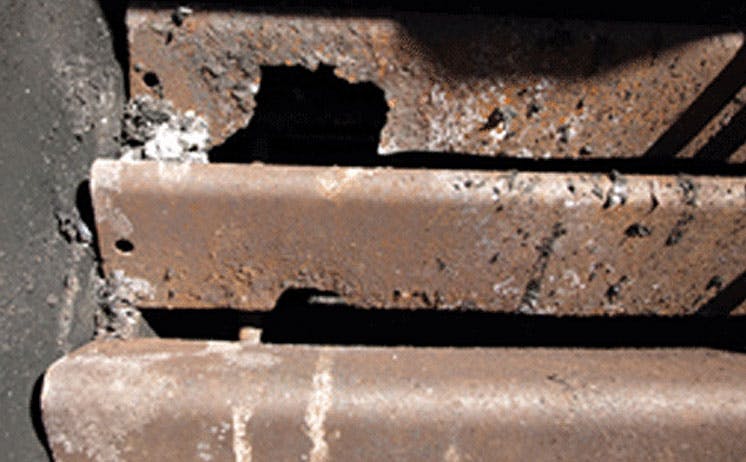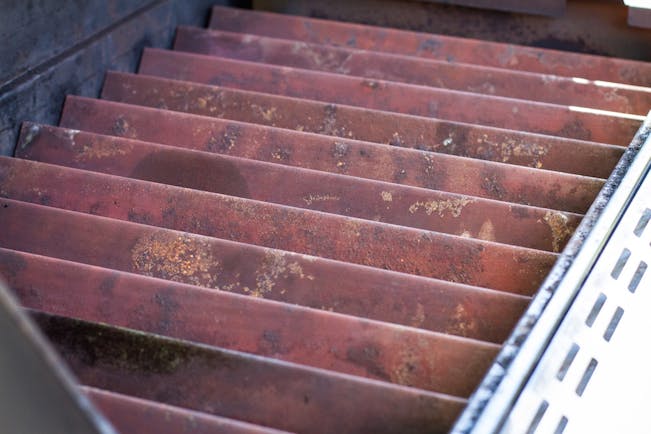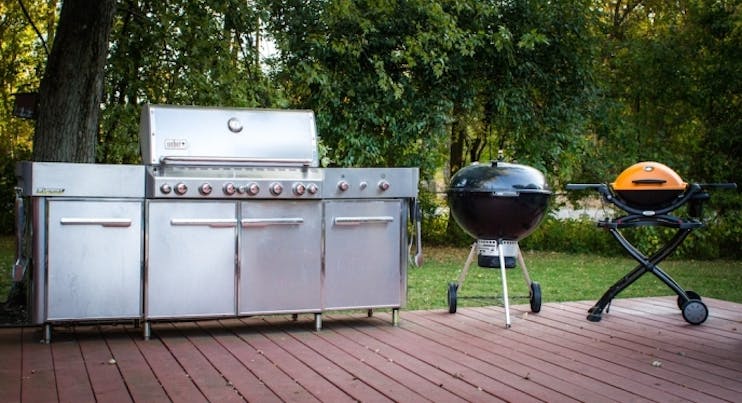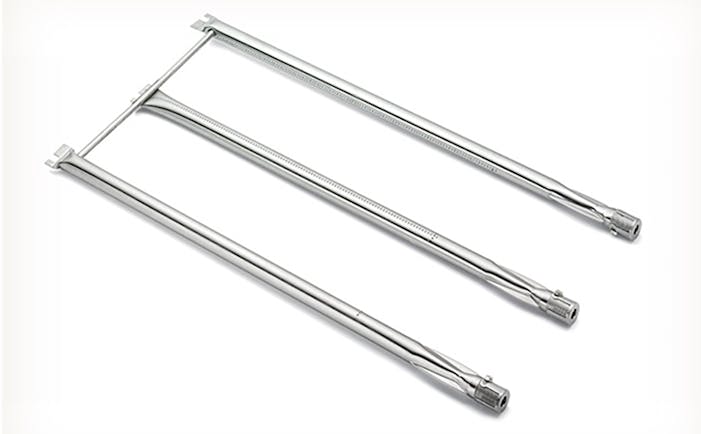Flavorizer Bars – Replace ‘em Or Keep ‘em?
Back when the first Weber Genesis models were designed in the 1980s, one of the biggest innovations of their design was the invention of the Flavorizer Bar. Pretty much any gas grill made prior to our invention used lava rocks, which were a mess to clean and maintain, not to mention prone to flare ups.

Every Weber Spirit, Genesis and Summit gas grill made today use Flavorizer Bars to direct grease and drippings away from the burner tubes, which cuts down on flare ups tremendously.
An extra benefit of Flavorizer Bars is that they help add that “cooked on a grill” flavor to your food. Drippings, marinades and juices from food being cooked fall down onto the hot Flavorizer Bars, and are vaporized and circulate back up to the food and add that great, extra flavor.
Due to the function that Flavorizer Bars serve in the grill, they probably take more punishment than any other part. They are subjected to all the heat from the burners below them, and all those drippings from the food above can get them rather greasy and messy. That’s why one of the most important things you can do for your Weber gas grill is to clean the Flavorizer Bars.

Brand new Flavorizer Bars will be shiny and clean, like the ones pictured above, but it won’t take many uses of the grill for them to take on a less attractive appearance. Shown below are the same Flavorizer Bars from the last picture, about a year later. They’ve developed a bit of surface corrosion, but all they need is some maintenance, and are actually in good condition to keep serving their function.
Many people often think that they need to replace their Flavorizer Bars when they develop some surface corrosion, but so long as they haven’t developed any holes or cracks in them they should work just fine. The Flavorizer Bars in the next photo are examples of ones that should be replaced.
So, if your Flavorizer Bars are in good condition, what’s the best way to clean them?
For my grill, I use two different tools. A grill brush and a plastic putty knife, but before you attempt to clean the Flavorizer Bars, it can be helpful to fire up the grill. Let the grill run on high, for about 10 to 15 minutes, and then let it cool down. This will burn most of the grease and residue on the Flavorizer Bars into ash, which will make it much easier to clean them.
Once the Flavorizer Bars have cooled down all the way, take out the cooking grates so you can access the Flavorizer Bars. If the Flavorizer Bars only have minimal build-up on them brushing them might be all that’s necessary.
If they’ve gotten moderately dirty I prefer to pull each one out and give it a more thorough brushing, and will use the putty knife to scrap off anything that the brush can’t handle.
For really dirty Flavorizer Bars take the bars out of the grill, put them in the sink and clean them with some soapy water and an SOS pad. Make sure you don’t use any lemon-or citrus-based soaps. Rinse the Flavorizer Bars thoroughly and towel dry them.
Don’t let them air dry, or they may form excessive rust prematurely. We also don’t recommend putting Flavorizer Bars in your dishwasher. The amount of debris they release could cause your drain to clog. Lastly, don’t use oven cleaners or put them in a self-cleaning oven.
How often you’ll need to clean the Flavorizer Bars in your grill depends entirely upon how often you use it, and what you cook.
During the summer months, when my grill sees action almost every day, I try to take them out and clean them about every 4th time I use the grill. You might be asking, why so often? Well I tend to use a lot of marinades and barbecue sauces when I cook, which means there’s a lot of stuff dripping down onto my Flavorizer Bars.
By cleaning them as often as I do, not only am I prolonging their lifespan, but I have a better time grilling when they are nice and clean. If they are clean, the drippings will flow over them better, which means less chance for a flare up, which is always a plus.
Show your Flavorizer Bars some love by keeping them clean, and they’ll return the favor by keeping your grill running well for years to come.


